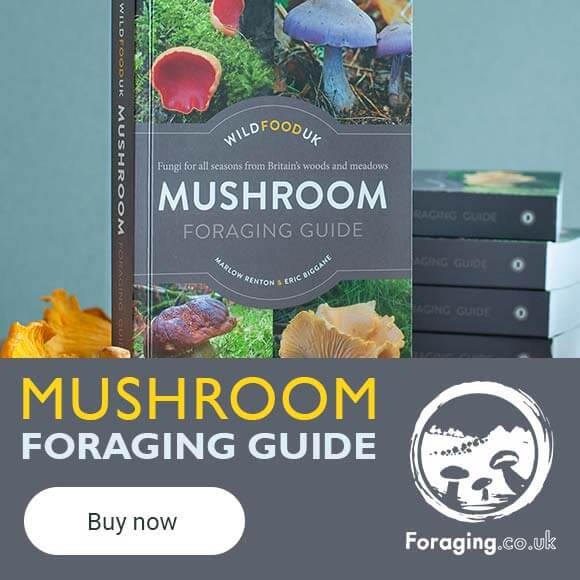Wood Sorrel
A wonderful find when walking through woodland at almost any time of year.
| Hedgerow Type | |
| Common Names | Wood Sorrel, Fairy Bells, Wood Sour, Cuckoo's Meat |
| Scientific Name | Oxalis acetosella |
| Season Start | Jan |
| Season End | Dec |
Leaves
Three heart shaped leaves with a perpendicular stem descending from the middle, a little like clover. The leaves ‘wilt’ or close at night or if conditions are harsh.
Habitat
Woodland floors and hedgerows and almost anywhere damp and shady that has been undisturbed for a long period of time.
Possible Confusion
Clover, pictured, but this is edible in small amounts and in no way has the citrus/apple peal taste of Wood Sorrel. Clover is plant of grassland and the mature leaves don’t have a heart shape.
There are many different members of the Oxalis family and several of them are called Wood Sorrel. All green leaved varieties are edible. This includes Pink-sorrel and similar species with pink flowers and larger leaves, as well as yellow flowered species that are fairly common in flower beds.
There is a small purple variety called Creeping Wood Sorrel which is common in many gardens growing between cracks and plant pots but it is sometimes mentioned as an hyper-accumulator of copper.
Taste
Sharp and sour something like apple peel and lemon, very pleasant when thirsty.
Frequency
Common in established woodland.
Collecting
The leaves, stem and flowers of this little plant are edible.
It contains oxalic acid so it should be consumed in moderation.
Medicinal Uses
Wood sorrel was used in the past for treating scurvy due to its high vitamin C content. American Indians used related plants for many purposes like cramp, nausea, fever and soreness.
Other Facts
Sorrel comes from French where it means sour. A real thirst quencher when out walking in the woods or sprinkled in a salad.
All members of the Oxalis family contain oxalic acid and should not be eaten in large quantities but to put it in perspective, there is oxalic acid in chocolate, coffee, pulses and many other foods and they don’t come with a warning.






























23 comments for Wood Sorrel
Do people usually eat the roots of wood sorrel? When I picked it for the first time the roots didn’t look that tasty. I washed and ate the leaves and the single stems raw on my salad. I am just starting to learn. So far I know clover, wood sorrel, and dandelions. Thanks
Hi Donald.
No we leave the roots, we gently pick the leaves and stems as the roots are often quite shallow and will come up by mistake. Leave the roots in to grow another day 🙂
Can’t seem to find it in Suffolk any ideas
Keep looking, it does grow there.
We tasted Wood-Sorrel this week and all thought it tasted like strawberries. We would never take the roots of plants, certainly not of a plant as rare as wood-sorrel!
Just found this beautiful little plant by the stream in south Devon. Thank you for your clear identification and information
Wood Sorrell appears to have seeded in my garden. I assumed that the Birds may have spread the seeds. I have Wild Strawberries in the same plot. Will the Wild Strawberries still come through or will I need to thin out the Wood Sorrell to give it a chance?
The Wood Sorrel will hinder the strawberries a bit but the two go together rather well.
Now i will try to taste it. In my pots it appeared naturally. It has beautiful yellow flower plant itself is very delicate with bright green leaves.
I’ve just found that I have wood sorrel in my garden. Certainly handy to know when I’m just starting to learn more about foraging
I found this pretty plant had somehow seeded itself into 2 house plant pots and so I replanted them into their own pot. One plant has survived and is a pleasing delicate addition on window ledge. I suspected it to be Wood Sorrel but didn’t know I could eat it. Thankyou for the information. Do you think it would be safe for hamsters, rabbits etc to nibble on?
Only just discovered what this is, it grows in lots of different parts of my garden. Had it for years & just thought how pretty it was. I tend to allow plants to grow where they are happy. I didn’t buy it, do I guess the birds gifted it to me. Love it thank you for clearing identifying it.
Is a 5 leaf wood sorrel normal?
They can have more than three leaves, some have four naturally and I’m sure more than that can grow like five leaved clover.
Just found loads growing down a side alley near were I live. Lovely taste! Zingy, like apples and lemons. Will go and collect more later.
I have just identified this plant after finding it in my garden for the first time. It’s taking over the cracks in the patio and I haven’t the heart to pull it up. It isn’t in the flower beds at all,very strange.
Sounds like Creeping Wood Sorrel, Oxalis corniculata, it usually has purple or purple tinged leaves.
Just found some when out walking in the woods with my son. It tastes amazing, will definitely nibble on this again and sprinkle in our salad!
Fabulous photos!! A colourist looking for reference photos… thank you so much!
I look forward to foraging these in the uk! We have them in Norway and they are my childhood!
For people wondering, I used to always find them by the edge of the forest by the road where it was dark and shaded. The gold spot were the ones next to a hill with streets around it. This might just be my memory as a child, but it was also on rainy or humid days we’d find a cluster of them. So I think it was in the autum we’d see an abundance of them, but again this is in Norway so it might be different in the uk
The stem is the sourest part, but the leaf is also very nice, just not as sour. So it’s easy to just grab one and pop it in your mouth as it is. I could definitely see thing going on a dessert like vanilla ice-cream because of its sourness 🙂
i am worried a bit , i have been taking hot water with leaves of wood sorrel , and yet pregnant , i hope it does not affect me . should i stop
Wood Sorrel in small amounts should not be harmful but as you are pregnant, I would err on the side of caution and stop consuming it every day. Wood Sorrel contains oxalic acid which can interfere with the absorption of certain nutrients so it should never be eaten in large amounts regularly.
I have a batch that have cropped up in our newly (3 months ago) mulched yard. I believe some of the fine roots had remained from the previous planting. I wanted to be sure it was a form of Sorrel and found your website for the answer. It is Wood Sorrel so plucked a leaf, chewed it and remember the tangy taste. Thanks for the detailed bio. of this delightful plant. This does have the delicate white flowers with the purple veining.
Estelle Chisholm
Jacksonville, Florida
USA